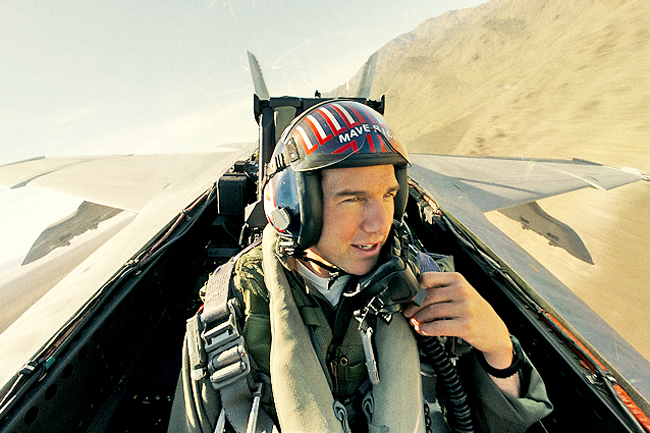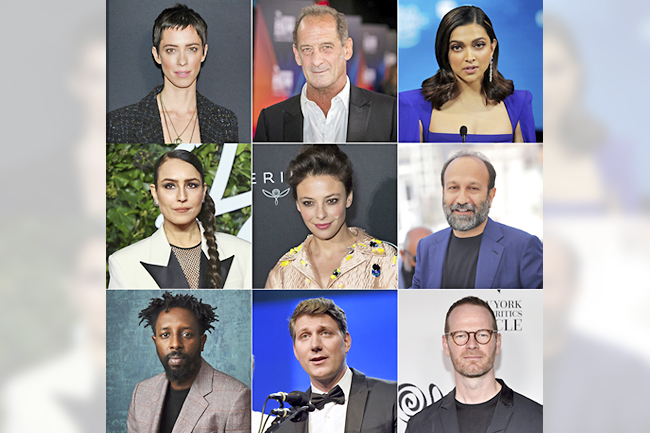Jake Coyle
After the 2020 Cannes Film Festival was cancelled by the pandemic and the 2021 edition was scaled back – even kisses were forbade on the red carpet – the lavish French Riviera cinema soiree is set to return with a festival that promises to be something like normal.
Or at least Cannes’ very particular brand of normal, where for 12 days formal wear and film mingle in sun-dappled splendor, stopwatch-timed standing ovations stretch for minutes on end and director names like “Kore-eda” and “Denis” are spoken with hushed reverence.
What passes for the usual at Cannes has never been especially ordinary, but it has proven remarkably resilient to the fluctuations of time. Since its first festival, in 1946 on the heels of World War II, Cannes has endured as a maximalist spectacle that puts world cinema and Cote d’Azur glamour in the spotlight. This year marks Cannes’ 75th anniversary.
“Hopefully it will go back to a normal Cannes now,” said Ruben Östlund, who returns this year with the social satire Triangle of Sadness, a follow-up to his Palme d’Or-winning 2017 film The Square.
“It’s a fantastic place if you’re a filmmaker. You feel like you have the attention of the cinema world,” added Östlund. “To hear the buzz that’s going on, people talking about the different films. Hopefully, they’re talking about your film.”
This year’s Cannes, which opened yesterday with the premiere of Michel Hazanavicius’ zombie movie Z, will unfold against not just the late ebbs of the pandemic and the rising tide of streaming but the largest war Europe has seen since WWII, in Ukraine. Begun as a product of war – the festival was initially launched as a French rival to the Venice Film Festival, which Benito Mussolini and Adolf Hitler had begun interfering with – this year’s Cannes will again resound with the echoes of a not-so-far-away conflict. Cannes organisers have barred Russians with ties to the government from the festival. Set to screen are several films from prominent Ukrainian filmmakers, including Sergei Loznitsa’s documentary The Natural History of Destruction. Footage shot by Lithuanian filmmaker Mantas Kvedaravi?ius before he was killed in Mariupol in April will also be shown by his fiancée, Hanna Bilobrova.


At the same time, Cannes will host more Hollywood star wattage than it has for three years.
Joseph Kosinski’s pandemic-delayed Top Gun: Maverick will be screened shortly before it opens in theatres. Tom Cruise will walk the carpet and sit for a rare, career-spanning interview.
“Every director’s dream is to be able to go to Cannes someday,” said Kosinski. “To go there with this film and with Tom, to screen it there and be a part of the retrospective they’re going to do for him, it’s going to be a once in a lifetime experience.”
Warner Bros will premiere Baz Luhrmann’s splashy Elvis, starring Austin Butler and Tom Hanks. George Miller, last in Cannes with Mad Max: Fury Road, will debut his fantasy epic Three Thousand Years of Longing, with Idris Elba and Tilda Swinton. Ethan Coen will premiere his first film without his brother Joel, Jerry Lee Lewis: Trouble in Mind, a documentary about the rock ‘n’ roll legend made with archival footage. Also debuting: James Gray’s Armageddon Time, a New York-set semi-autobiographical coming-of-age tale with Anthony Hopkins, Anne Hathaway and Jeremy Strong. Far from all of Hollywood will be present. Cannes’ regulations regarding theatrical release have essentially ruled out streaming services from the competition lineup from which the Palme d’Or winner is chosen. This year’s jury is headed by French actor Vincent Lindon.
Last year’s Palme winner, Julia Ducournau’s explosive Titane, which starred Lindon, was only the second time Cannes’ top honour went to a female filmmaker. This year, there are five movies directed by women in competition for the Palme, a record for Cannes but a low percentage compared to other international festivals.
This year’s lineup, too, is full of festival veterans and former Palme winners, including Hirokazu Kore-eda (Broker), Christian Mungiu’s (RMN) and Jean-Pierre and Luc Dardennes (Tori and Lo
kita). Iconoclast filmmakers like Claire Denis (Stars at Noon), David Cronenberg (Crimes of the Future) and Park Chan-wook (Decision to Leave) are also up for the Palme, as is Kelly Reichardt, who reteams with Michelle Williams in Showing Up.
Even with a robust slate full of Cannes all-stars, how much can the festival really revert back to old times? Last year’s light-on-crowds edition included masking inside theatres and regular COVID-19 testing for attendees.






